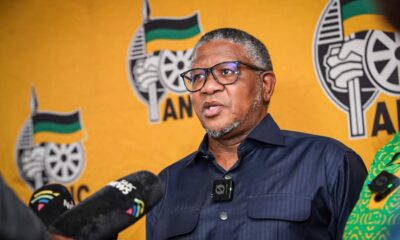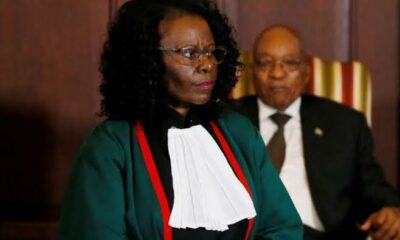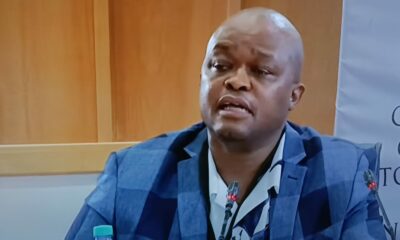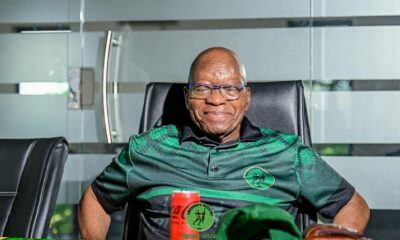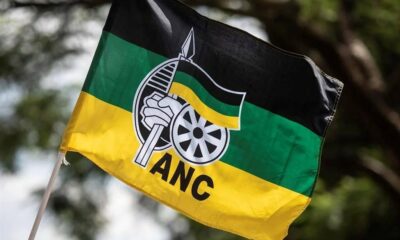News
Thabo Mbeki: “The Way South Africa Elects Its President Is Wrong”
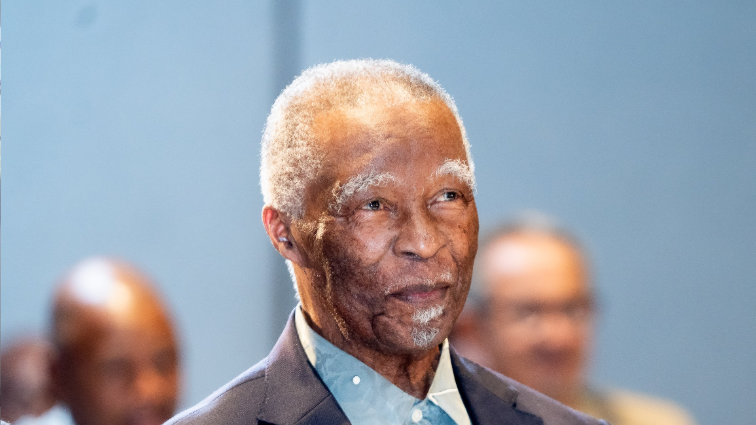
Thabo Mbeki: “The Way South Africa Elects Its President Is Wrong”
Former president Thabo Mbeki has never been one to shy away from difficult conversations and this weekend in Gqeberha, he sparked a big one. Speaking at Nelson Mandela University during the launch of the National Dialogue for the Eastern Cape higher education sector, Mbeki said South Africa’s system of electing its president through Parliament is “wrong” and urgently needs reform.
“The question is never asked if a President is capable and a fit and proper person,” Mbeki told the audience, drawing laughter when he added, “When Parliament said I must become president, they didn’t have a clue what I was capable of doing and they never asked.”
It was a humorous admission, but his message was serious: South Africa’s democracy, now 30 years old, is in trouble and its leadership structures might be part of the problem.
Former president Thabo Mbeki says the way South Africa elects its president is “wrong.” @TMFoundation_ pic.twitter.com/ZZa1N41edO
Faizel Patel (@FaizelPatel121) November 3, 2025
“A President Should Be Chosen for Competence, Not Politics”
Mbeki’s remarks were delivered under the theme “Making Sense of the National Dialogue – A People in Conversation”, and they carried the weight of a man who’s seen the inside of power and its pitfalls.
He argued that the country’s current system where the president is elected by members of Parliament prioritises party loyalty over competence and national interest.
“One of the things that must come out of this National Dialogue is that we must change how we choose our president,” he said. “We must ensure that the person who becomes president is competent to carry out the tasks required.”
While he didn’t specify whether he supports a direct election system, his comments suggest that Mbeki believes ordinary South Africans should have a stronger hand in determining who leads them.
A Nation at a Crossroads
The former president didn’t stop there. He painted a stark picture of South Africa’s current state a country, he said, gripped by multiple overlapping crises.
“If you look at South Africa at the age of thirty, the economy is in crisis, politics are in crisis, crime and corruption are in crisis. Even our relations with the rest of the continent are in crisis,” Mbeki said. “There is nothing you can look at in South Africa at thirty which does not say ‘crisis.’”
Mbeki’s tone was one of urgency and frustration not just with the government, but with the growing sense of public disengagement. He warned that “unprecedented and dangerous levels of civic despondency” have taken root, leaving citizens feeling powerless and detached from their democracy.
“The People Must Provide the Answers”
Perhaps Mbeki’s most powerful call was for South Africans themselves to take ownership of the country’s future.
He revealed that ahead of the 2024 national elections, he had studied political party manifestos closely only to conclude that none offered real solutions.
“It is time for South Africans to provide the answers,” he said. “And by answers, I don’t mean political promises. Answers can only come from the people, not political parties.”
For Mbeki, the National Dialogue represents a space where scholars, activists, and ordinary citizens can step forward with fresh ideas and practical solutions, not just rhetoric.
Social Media and Public Reaction
On social media, Mbeki’s remarks struck a chord. Some praised his honesty, saying his critique reflects what many South Africans have long felt, that politics has become too insular and disconnected from everyday struggles. Others were more skeptical, noting the irony of Mbeki’s critique given his own controversial tenure and eventual recall from office in 2008.
Political analysts, however, agree that his comments tap into a growing sentiment: South Africans want more direct accountability from their leaders. As one political commentator on X (formerly Twitter) put it: “Mbeki is saying what we’ve all been thinking we vote for parties, not presidents, and that has to change.”
A Call Beyond Politics
Mbeki’s remarks might ruffle feathers in the ANC and among parliamentary traditionalists, but they also reopen a necessary national conversation about leadership, accountability, and what kind of democracy South Africa wants to be.
As the country inches closer to the next election cycle, his words may resonate far beyond the halls of Nelson Mandela University. They remind citizens that democracy is not just about voting, it’s about demanding competence, character, and vision from those who lead.
Or, as Mbeki put it simply:
“We must move beyond wishlists. We need practical answers and they must come from us, the people.”
{Source: The Citizen}
Follow Joburg ETC on Facebook, Twitter , TikTok and Instagram
For more News in Johannesburg, visit joburgetc.com

